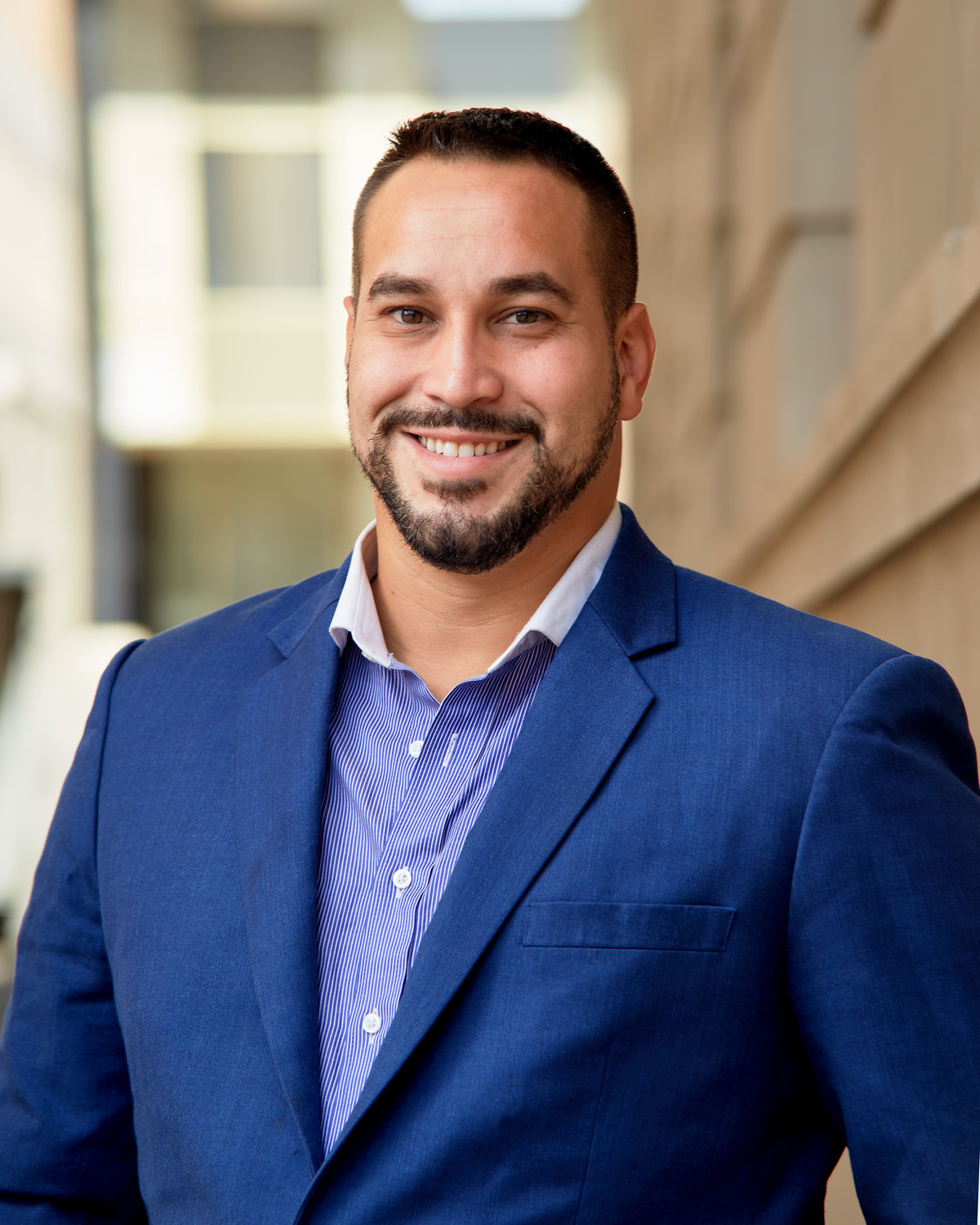Lozada will stay in race against Meeks
An almost tale of two seats, one candidate
Candidates for local congressional races have kept busy these past few months with door-to-door petitioning and back-to-back campaign events. And then the courts stepped in, throwing out redistricting maps and creating a seemingly new field.
Some seats candidates sought no longer looked as viable with all the changes, and that means that some districts — like the one U.S. Rep. Kathleen Rice is vacating — might have a different feel for those wanting to head to Washington.
Like Valley Stream’s Frankie Lozada.
The 32-year-old had actually thought about jumping into this new political ring. But ultimately he decided to stay in the race he’s in: the one to unseat incumbent U.S. Rep. Gregory Meeks, a Democrat who represents a large chunk of Queens and a little bit of Nassau County.
“I’m still petitioning for both districts just to see where the petitions lie,” Lozada said, ahead of making his final decision on Tuesday.
“For me, it’s easier to petition in the 4th District,” he said. “It’s a bigger area, and it’s a lot easier to campaign there. I have a better shot in the 4th than going against a 25-year incumbent.”
His last-minute decision to stay in the race with Meeks remains ahead of the June 10 deadline for candidates to file their petitions securing their place in their party’s primary, fueled in part by those district lines redrawned last month.
“They drew the line straight from where Queens meets Alden Manor and Valley Stream,” Lozada said. “So initially, I was living in the 5th District, and then overnight, I’m now not in the 5th District,”
If he had run as a Democrat in Rice’s district, Lozada would have joined an already crowded and politically experienced field of challengers including Malverne Mayor Keith Corbett, former Town of Hempstead Supervisor Laura Gillen, and County Legislator Carrié Solages.
Lozada’s thoughts of pivoting seem to have come out of left field for leading Democrats in Albany last week who, at least according to him, urged Lozada to reconsider. Lozada believes his breadth of life experience traveling the country as a logistics and events manager — and his brief stint as a mobile Covid-19 site logistics manager for undocumented children at the immigration intake emergency shelter at Fort Bliss, Texas — offers him a unique perspective of people that makes him stand apart from anyone who might run against him.
Lozada fell into politics after he decided to embark on a deep dive into the workings of government, and felt a lack of perceived accountability and progress made by politicians over the years. He moved to Valley Stream from Jamaica in 2000, and graduated from Valley Stream North High School in 2007. His life as the son of a native Puerto Rican mother and a city-born Puerto Rican father has also influenced his politics.
“My mom and dad were both raised in the projects,” he said. "My dad, unfortunately, tried to get out of the projects, and made some terrible decisions, getting involved with the wrong people. He has been incarcerated for all my adult life.”
Lozada’s mom has also struggled, “but it’s not an uncommon story for many minorities,” he said. “I’m a big advocate of giving people second chances.”
To that end, Lozada has pushed for prison reform that would help those who served their time secure jobs later. He also aims to tackle the nation’s existing affordable housing shortage.
“I want to get a lot of our communities out of renting and into their own homes,” Lozada said. “We need to educate kids early about finances, investments, how to save, and how to start businesses.”
Lozada also wants to dedicate more resources to help alleviate the refugee immigration woes faced at the border.
“I was very fortunate to work at the Mexican border in El Paso,” he said. “I dealt with the migrant children that came unaccompanied. And I heard their stories.
“It’s very different than what we hear on the news. It’s a lot worse than what a lot of people think. And I think I owe it to them to kind of work with them and find ways to make their experiences better, and give them an easier pathway to safety and security here in this country.”
For Lozada, Hispanic representation in political leadership matters.
“I feel like our Latino and Black communities are underrepresented,” he said. “And we trust a lot of the politicians that look like us, but they don’t really do much for us. They benefit themselves.”
Hispanics are still under-represented in Congress (9 percent) relative to their share of the U.S. population —19 percent.
“The advantage of having people of color in positions of power in Congress — in the federal, state or the city level — is that you have people who can identify with the problems people who live in communities of color face every day,” said Anthony Andrews, an advisory board member of Leaders of Color, a civic advocacy group that recruits and trains people of color into political office.
“We talk about how the pandemic disproportionately affected communities of color across the nation,” he said. “Having people who can make the law who can understand these things make a difference because their view of the world is different.”
Something Lozada says he keeps in mind as he moves forward with his quest to end up in Washington.
“Nobody is immune to people’s voices,” he said. “I’m all for empowering our communities and letting them know, ‘Hey, this is what you can do to make a difference.’”







